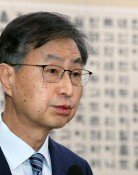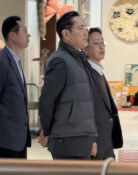[Editorial] Fighting Government Corruption
[Editorial] Fighting Government Corruption
Posted February. 02, 2010 09:01,
Seoul Metropolitan Police Agency Commissioner Jo Hyun-oh has ordered his officers to submit prior consent before probing bank accounts and phone records without a warrant. This is apparently intended to prevent collusion between police and prostitution parlors and gambling dens. Frontline police officers oppose the move, saying the measure excessively violates police privacy. Prosecutor General Kim Jun-gyu has also ordered a crackdown on corruption in education. He has also launched an investigation to root out bribery in return for appointments and embezzlement. After suffering disgrace due to a series of bribery scandals, the Seoul Metropolitan Office of Education says it will offer a reward of 100 million won (85,616 U.S. dollars) to a whistleblower.
It is a source of shame that Korea is plagued by corruption in the 21st century, when the nation is making an all-out effort to advance itself after undergoing successful industrialization and democratization. Recent corruption committed by government officials is different from that of lower-level officials who desperately need extra money to make a living. Yet public servants have nothing to fear when it comes to unemployment and have benefits and pension that are the envy of Koreans. Nevertheless, there are police officers, teachers and government officials who frequently deal with citizens often taking bribes in return for favors.
Widespread corruption even prompted the Seoul police commissioner to introduce a tough measure to trace personal phone records. Some complain this will lower morale among police officers and reject tracing personal phone records or bank accounts without a warrant as unacceptable. When high-ranking officials are appointed, however, they sign a consent form allowing their bank accounts to be traced. Police, tax officials and educational authorities who frequently meet citizens are prone to collusion and corruption. If frontline officials commit corruption, the people will lose confidence in the public sector.
Monitoring of frontline public servants by the people and inspectors is one form of protection against corruption, but this is not enough. Police might use other means to contact bribers or avoid detection by using bank accounts not probed by inspectors. Commissioner Jos unexpected statement is probably an attempt to attract public attention at a time when Koreans are growingly fed up with government corruption.
Bribery has also reared its ugly head in education. Bribes are offered in exchange for appointments as principals or vice principals of schools in which the parents of students are high-income earners or being named educational administrators. Because educational corruption is so endemic in Korea, the possible effects it will have on young students are worrisome. A series of corruption scandals in education has encouraged the Korean Teachers and Educational Workers Union to justify its improper behavior and incapable teachers to support the militant union for their own interests.
Most of all, police officers, teachers and government officials should understand that their first and foremost task is to serve the public. They should instill a sense of pride about the integrity of their professions in their children. A campaign to require police officers to wear their uniforms before going to work is also desirable. People should also refrain from trying to bribe government officials and teachers in return for preferential treatment.






![“숨 못 쉬겠다”vs“밖에서도 못 피워?”…엘베 담배 냄새 논란 [e글e글]](https://dimg.donga.com/c/138/175/90/1/wps/NEWS/IMAGE/2026/01/06/133100180.2.jpg)
